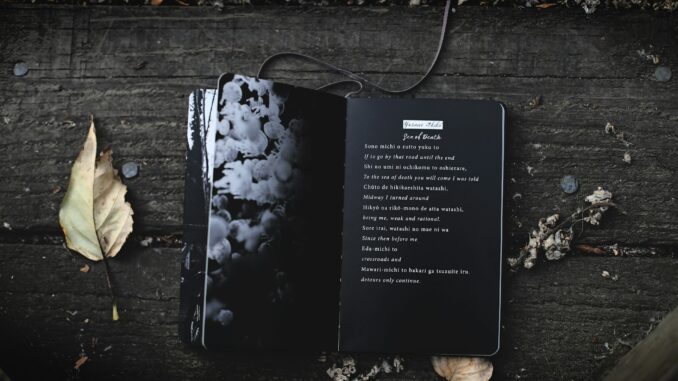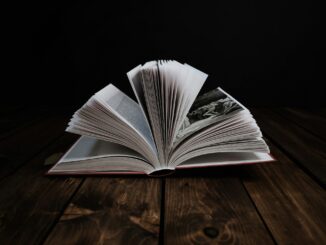
If you are someone who is wondering what was the Purpose of the Earliest Poetry? It has many sayings in different cultures. Poems reflect how one feels, it informs, empower and even help people heal. Poetry resembles something drastically deeper than what is superficial. It carried the power to touch people and make change.
Poetry in the Early Days
In the past poems used to tell stories or even record and capture history thousands of years ago. Long before people were able to read and write, they used to memorise poetry. One of the reasons poetry popularly spread was because these people used to tell it to others.
If you think of some of the oldest poems it dates back to Homer, The Lilliad and The Odyssey. However, African traditional poetry is drastically different to what these poets have written in the West and the East.
African traditional poetry is part of a larger picture bringing together a tapestry of differing stories and experiences. It remains a powerful message and way of informing the new generations of the past.
If you have ever thought what was the Purpose of the Earliest Poetry in Africa, it’s a different meaning out there. During pre-colonial African life, poetry was a vocal and theatrical performance.
It also had ceremonies which engaged in powerful story telling. Some Africans say that Earliest Poetry in Africa for them is spiritual, entertaining, and educative and for some, it’s political.
The Purpose of the Earliest Poetry
The many purposes early day poetry in Africa resembles many things to Africans. These include:
- A way of storytelling about history and their gods
- A way of remembering history orally through memorisation
- During celebrations poetry recites through memorization in festivals and gatherings
- Expressing the identity and heritage of Africans
- Articulating the fight and struggle against apartheid, colonisation, imperialism and segregation
- A way of advocating for various causes and initiating change
- Praise poetry was a political art form that depicts social consciousness
- The means of healing from present struggles and the past using as a form of therapy
- A way of overcoming negative and traumatic experiences
- Recoding history
South African Poetry and Apartheid
During a time the African nation was going through a mass segregation and fighting against oppressive regimes poetry was a performance art. In underground rallies poetry was performed. It informed of political events and cultural gatherings.
Much of the African poetry even in the present day influenced from the apartheid era. These poems depicted themes of race, gender, inequality, injustice, oppression, struggle, and colonisation. It was a powerful instrument of empowerment and resistance.
In recent times many competitions have come up those awards poetry writers. The Zimbabwean poet and filmmaker Zibusiso Mpofu wins Brunel African poetry prize 2022. This is a remark that even to this present day, African poetry remains relevant and significant.
Famous South African Poets
These are some of the famous South African Poets of its time. Many of them wrote poetry informing about the apartheid and the injustices they were met with. To this day, their work serves as a powerful symbol of heroism and social justice.
- Keorapetse William Kgositsile
- Mzwakhe Mbuli
- James Matthews
- Wopko Jensma
- Mongane Wally Serote
- Sipho Sepamla
- Oswald Joseph Mbuyiseni Mtshali
- Christopher van Wyk
- Mafika Gwala
- Don Mattera
Conclusion
If you have ever stopped to think what was the Purpose of the Earliest Poetry, it was many things. It was a way of storytelling, preserving history and informing the public. African poetry differs drastically form the poets of the west who wrote poetry for love and sometimes war.
However, African poets wrote such pieces as a way of resisting segregation, colonisation, and imperialism. Poetry from the early days tells a story of culture, educates, and empowers remaining significant even during the present times.
Key Points
- Early poetry served as a way to record history and tell stories before people could read and write.
- African traditional poetry was performed vocally and theatrically, playing a role in ceremonies and storytelling.
- Poetry in Africa expressed identity, heritage, and political struggles, including resistance against apartheid and colonization.
- South African poets used poetry as a tool for empowerment, resistance, and healing during apartheid.
- Modern African poetry remains significant, with poets like Zibusiso Mpofu continuing to win international recognition.
FAQs
Who is the famous South African poet?
There are many famous South African poets that wrote during the post-colonial era between 1948-1990. They are: Dennis Brutus, Ingrid Jonker, Mazisi Kunene, Nicolaas Petrus van Wyk Louw, William Ewart Gladstone (W. E. G.).
Is poetry used in South Africa?
Yes. It is widely used in South Africa especially among the indigenous. The first indigenous poetic narratives were the Sans. They expressed their rock and folklore through verbal, sensual, spatial and visual gestures.
Who is called the father of South African poetry?
Thomas Pringle (5 January 1789 – 5 December 1834) was a Scottish writer, poet and abolitionist. He is known as the father of South African poetry.
Who is the national poet of South Africa?
The late Keorapetse Kgositsile. He became South Africa’s national poet laureate in the year 2006.
How old is poetry in Africa?
They go back all the way to the 25th Century BCE. Some of their earliest writings found among pyramid texts.

